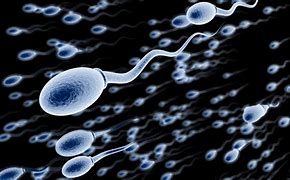Polycystic ovary syndrome (PCOS) is known to be the most common hormonal disorder in women during their reproductive years as it affects 5-10% of them. PCOS is most prevalent among women who have fertility issues. It is a complex ovarian disorder with various manifestations including polycystic ovaries, hyperandrogenism and irregular or absent ovulatory cycles. Pelvic trauma is an aggravating factor, but sensitivity due to hormonal changes is more common among those women that suffer from this syndrome.
PCOS is a multifaceted disorder affecting a woman’s endocrine system, which includes health aspects that are influenced by hormones. This condition can indeed affect a woman’s ability to conceive. In this article, we will take an in-depth look at how PCOS affects a woman’s reproduction life, the formalities surrounding the diagnosis as well as the treatment.
What is PCOS?
Ovaries of a woman affect a range of functions including the reproductive cycle; therefore, its enlargement should be taken seriously as it can lead to infertility. When numerous cysts occur in a woman’s ovaries, the condition is known as polycystic ovarian syndrome (PCOS). These cysts are somewhat termed as premature follicles since very few reaches full maturity whereby, they can ovulate. This results in hormonal dysfunction consequently leading to reproductive hormones imbalance which in turn promotes ovulation disorders including anovulation in more severe cases.
Key features of PCOS symptoms include:
- The Menstrual Cycle Abnormalities: Irregularity in periods, or even in some cases, no periods, is a common occurrence in Women suffering from PCOS. In some cases, women may have scanty periods at times such that ovulation is difficult to forecast.
- Excess Male Androgens Hormones: Elevated Androgenic levels in women who have been diagnosed with PCOS tend to reach levels responsible for acne, hair growths (hirsutism) as well as bald heads.
- Ovarian cysts – Enlargement of the ovaries in poly cystic ovaries tends to occur in most females with pcos where the ovaries are seen to be studded with multiple small cysts. It is further evident with the assistance of ultrasound.
PCOS & Its Influence on Male Infertility
PCOS has a significant impact on fertility primarily due to hormonal factors that create situations when ovulation does not occur and changes to ovarian hormones. This affects the essential detail of the reproductive physiology, which is the ovulation process where eggs are released from the ovaries, and for fertilization to take place.
Anovulation: Due to PCOS’s failure to induce the body with ovulation, women with this disorder may only experience inconsistent ovulatory cycles or even no ovulation cycles at any given time. A woman may increase her natural fertility but once ovulation has failed to occur in a cycle, the sperm will not meet an egg, leading to the equilibrium of no fertilisation.
Irregular menstrual cycles: It is because of these irregular patterns that women suffering from PCOS have to endure difficulty in estimating the dates they will ovulate hence making conceiving a child naturally very hard. In women who suffer from PCOS this is also caused by a longer cycle or extremely sporadic menstruation rendering normal conception attempts quite complex.
Higher chances of Miskearage: Studies show that women who manage to conceive with PCOS are at even a greater risk of miscarriage but why this occurs is still under exploration.
Nevertheless, it must be emphasized that the majority of women with PCOS are able to get pregnant, and quite successfully, after undergoing treatment and modification of their lifestyle in some way or the other.
Symptoms of PCOS
The PCOS symptoms differ from women to women and can also vary in intensity! There are, however, a few most shared signs, or even characteristics belonging to the vast majority of those which have been diagnosed with this disease. They include:
Menstrual Dysfunction: Women suffering from PCOS cycle more than 35 days and they may also skip getting periods altogether.
Hirsutism: Women suffering from hirsutism might have increased growth of hair on other parts of the body like the face, chest, back, abdomen due to increased levels of androgens.
Other skin Problems such as Acne and Oily Skin: Increased body growth of hair due to androgen may also result into acne in women with PCOS on areas such as the face, upper back and torso.
Partial Hair Loss or Baldness: These women also tend to be hair thinner. Many take conditioners or many other buzz words of hair shampoos to reinforce hair but never get any positive results as they do not have the testosterone level in a woman but many women who have baldness from the crown owing to a high level of testosterone.
Infertility: Considering that ovulation is often its greatest irregularity, it follows that infertility stands as an infertility concern where PCOS is present.
Obesity or Weight Gain: More than half of women who are diagnosed with PCOS, will have a risk of obesity. This is likely to further increase reproductive challenges.
Skin Changes: Women who suffer from PCOS may develop dark patches on their necks, groin or axilla’s, which are areas that are more prone to friction or rubbing. This is known as Acanthosis nigricans, and it can indicate that a person has insulin resistance.








